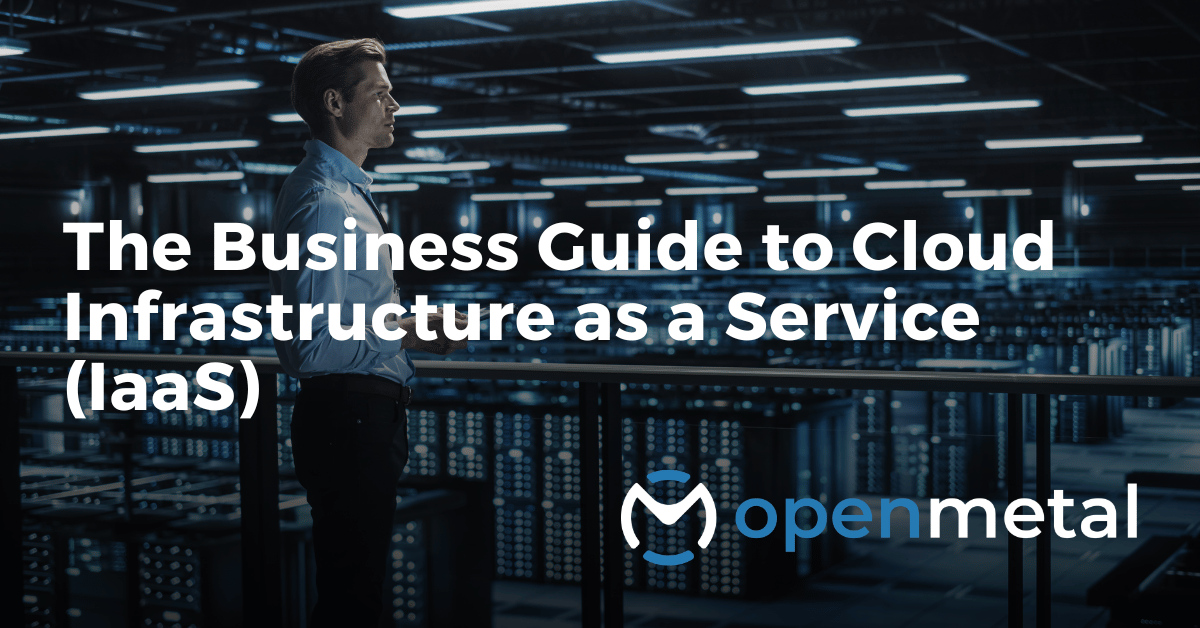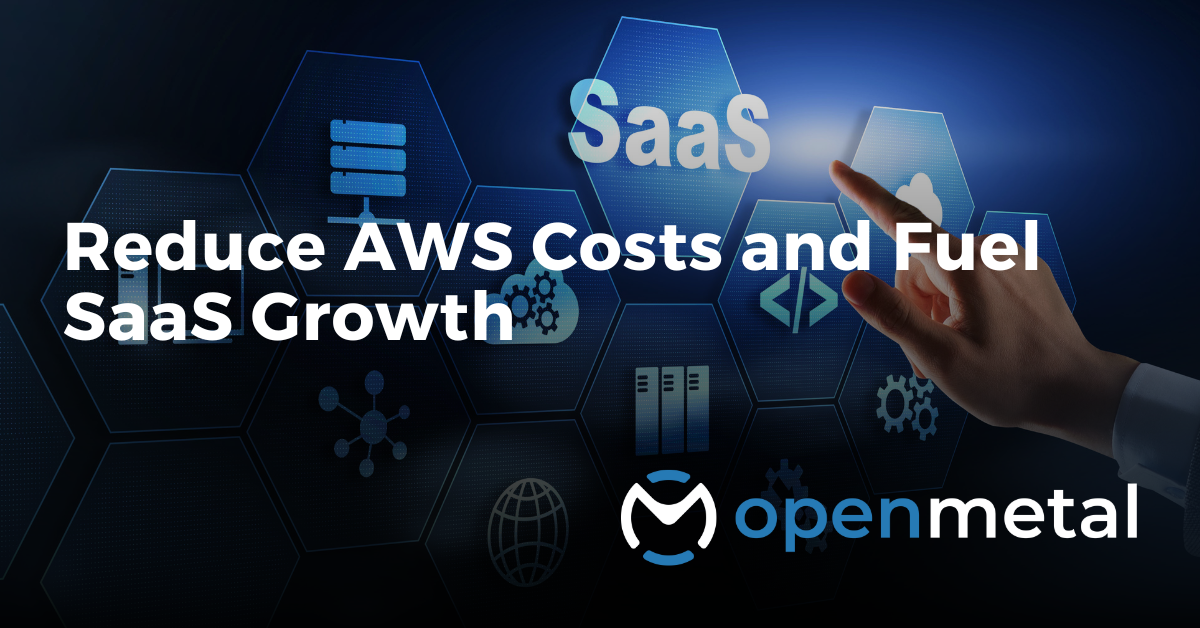Wouldn’t it be nice to have the latest technology for your business without the eye-watering price tag? That’s the magic of Infrastructure as a Service (IaaS).
In simple terms, IaaS lets organizations rent computing resources like servers and storage over the internet. This means you can scale up or down based on your needs without purchasing any expensive hardware yourself. It’s a powerful method for companies looking to stay agile and competitive, regardless of their size. Whether you’re a small business or a large enterprise, IaaS offers flexibility, cost savings, and access to cutting-edge technology. It’s allowed smaller organizations to compete with the larger teams and budgets of the big boys.
Curious how IaaS can transform your business? Let’s talk about it!
Understanding Infrastructure as a Service (IaaS)
Definition of IaaS
Infrastructure as a Service (IaaS) is a form of cloud computing that provides access to computing resources over the internet. In the IaaS model, third-party providers host hardware, software, servers, storage, and other infrastructure components for their users.
IaaS providers also offer a range of services alongside hosting, such as billing, monitoring, log access, security, load balancing, and clustering. These services can help your business scale up or down quickly as needed. Unlike traditional on-premises IT, where companies invest heavily in physical hardware and need to manage it themselves, IaaS allows businesses to purchase and use resources on-demand.
The Current Market Trend of IaaS
The trend towards IaaS has been growing, with companies doubling their budget on IaaS services in the last two years alone. This shift is largely due to the flexibility, scalability, and cost-saving benefits that IaaS offers.
According to Synergy Research Group, 2020 marked a significant milestone where spending on cloud services surpassed investments in data center equipment. This trend indicates a strong move towards cloud computing, with IaaS being a significant part of this shift. The rapid adoption of IaaS is not expected to slow down, with predictions suggesting that the market size will double again in the next few years. Already in 2023, “Q4 enterprise spending on cloud infrastructure services was close to $74 billion worldwide, up by over $12 billion from the fourth quarter of 2022″. This growth is a clear indicator of how integral IaaS has become to modern IT strategies.
The Role of IaaS in IT Teams
IaaS plays an important role in helping IT teams transition to a cloud-based model. It offers a manageable entry point into the cloud by allowing companies to offload certain data or technology sets to the cloud, while keeping others on-premises. This flexibility means that IT teams can start small and increase their use of cloud services at a pace that suits them. The ability to scale services up or down quickly means that businesses can respond quickly to changes in demand, without significant upfront investment in physical infrastructure.
The Division of Responsibilities in IaaS
Another benefit of IaaS is the division of responsibilities it allows. Companies retain control over their applications, data, and operating systems, while the IaaS provider manages the physical infrastructure. This separation allows businesses to focus only on managing their data and applications without having to worry about the underlying hardware.
It also enables a hybrid cloud model, where companies can choose which aspects of their IT infrastructure to move to the cloud and which to keep on-premises. This flexibility is particularly appealing for businesses that aren’t ready or don’t need to fully commit to a cloud-only model but still want to benefit from the scalability and cost-effectiveness that cloud services offer.
Benefits and Best Practices of IaaS for Mid-Size and Enterprise Companies
The Alignment of IaaS Benefits with IT Leaders’ Priorities
Infrastructure as a Service (IaaS) is not just another tech trend. It’s a strategic move that aligns perfectly with the priorities of IT leaders today. A CompTIA and PTI survey reported on in 2020 by Security Boulevard highlighted cybersecurity and data loss prevention, innovation in application technologies, and the modernization of outdated IT systems as the top three priorities for IT leaders in government sectors. These concerns are mirrored across various industries, emphasizing the universal appeal of IaaS.
IaaS has the ability to address these priorities head-on. By utilizing cloud solutions, companies can enhance their cybersecurity measures, promote innovation through access to the latest technologies, and modernize their IT infrastructure without the effort required with traditional IT upgrades.
Cost Reduction
One of the most compelling reasons for the shift towards IaaS is the significant cost reduction it offers. Traditionally, companies had to make substantial capital investments in hardware and infrastructure, not to mention the ongoing costs associated with maintenance, utilities, and staffing.
IaaS eliminates these capital expenditures by providing a pay-as-you-go model – only pay for what you use. This model not only reduces upfront costs but also transforms unpredictable capital expenses into predictable operating expenses. This predictability is helpful for financial planning, allowing companies to allocate resources more efficiently and invest in other areas of their business. Many organizations find that professional AWS cost optimization consulting helps them maximize these financial benefits and identify additional savings opportunities across their cloud infrastructure. If your organization follows FinOps practices, IaaS is a great fit.
Flexibility in Services
The ability to scale services up or down on demand is one of the hallmarks of IaaS, offering flexibility and growth support. This scalability ensures that companies are never paying for unused resources, and can quickly adapt to changes in demand. Whether it’s scaling up to accommodate a surge in business or scaling down during slower periods, IaaS provides the agility businesses need to stay competitive and prevent waste.
The rapid deployment capabilities of IaaS also means that IT teams can roll out new platforms or services in record time, allowing businesses to respond swiftly to market changes or operational needs.
Affordability of New Technology Through IaaS
Keeping pace with technological advancements is critical for businesses to remain competitive, but the cost of constantly upgrading hardware can be prohibitive, especially for small and medium-sized businesses (SMBs). IaaS levels the playing field by providing access to the latest technology without the price tag.
For IaaS providers, staying at the forefront of technology is required to remain competitive, which means that their customers automatically benefit from these advancements. This provides IaaS users with powerful computing capabilities, storage solutions, and networking technologies that would otherwise be out of reach.
Additional Advantages of IaaS
Enhanced Security Features
Security is more important than ever now that every business is online. With cyber threats always growing and changing, businesses of all sizes must prioritize robust security measures to protect their data and infrastructure. IaaS shines in this arena, offering advanced security features that are often out of reach for many companies due to cost or complexity.
The World Economic Forum’s Global Risks Report underscores the importance of cybersecurity, with businesses from government sectors to healthcare at risk of cyberattacks. IaaS providers invest heavily in state-of-the-art security technologies, including physical security measures and built-in redundancies, ensuring that your IT infrastructure is protected against a wide array of threats. This level of security allows businesses to focus on growth and innovation, knowing their data is secure.
Focus on Strategic Innovation by Reducing Monotonous Tasks
One of the less often mentioned but equally important benefits of IaaS is its ability to free up IT teams from routine maintenance tasks. By offloading responsibilities like patches, upgrades, and repairs to the IaaS provider, IT staff can redirect their focus towards strategic initiatives that drive business growth and innovation.
This shift not only enhances the efficiency of the IT department but also contributes to employee satisfaction by enabling them to engage in more meaningful and rewarding work. Attracting and retaining top IT talent is challenging, and providing opportunities for strategic engagement can give businesses a significant competitive edge.
On-Demand Access and Availability With IaaS
During a disaster or unexpected outage, the resilience of your business operations is put to the test. IaaS offers fantastic reliability, ensuring that your business remains online.
With cloud-based infrastructure, your data and applications are accessible anytime, anywhere, as long as there’s an internet connection. This is critical for maintaining business continuity, especially when physical access to office locations may be compromised. IaaS brings peace of mind that you’ll be able to withstand anything that may happen.
Choosing an Infrastructure as a Service Provider
The Importance of Choosing the Right IaaS Provider
Selecting the right Infrastructure as a Service (IaaS) provider is more than just a technical decision, it’s a strategic one. The right provider can take your business to the next level, offering scalable solutions that grow with your business, ensuring security, and providing the flexibility to adapt to market demands.
Conversely, the wrong choice can lead to unnecessary complexity, inflated costs, and potential security vulnerabilities. It’s essential to approach this decision with a clear understanding of your organization’s needs and a thorough evaluation of what each provider offers. This careful selection process will ensure that your IaaS partnership is a driving force behind your business’s success, rather than a hindrance.
Questions to Ask a Potential IaaS Provider
When vetting potential IaaS providers, it’s critical to dig deep into the specifics of their service offerings to ensure they align with your business objectives. Questions should cover a range of topics from security protocols and data center specifications to support availability and maintenance routines. This will help you gauge the provider’s capability to meet your needs, their commitment to maintaining high standards, and their ability to support your business’s growth and evolution.
By asking the right questions upfront, you can establish a clear picture of what each provider brings to the table and how well they match up with your requirements. To keep your vendor meetings organized and be sure you’re asking all the important questions, download our free cloud service provider questionnaire.
Understanding the Data Center of an IaaS Provider
The backbone of any IaaS provider is its data center. This is where your data will be stored, managed, and protected. Therefore, understanding the specifications and capabilities of a provider’s data center is important. Knowing the ins and outs of a provider’s data center can give you confidence in their ability to safeguard your data and ensure continuous operation.
Key aspects to ask about include the physical and cybersecurity measures in place, the data center’s resilience to outages, and its environmental controls. Providers utilizing Tier 5 Data Centers, for example, demonstrate a commitment to the highest standards of reliability and security, often working with expert ISO 27001 consultants to meet stringent international standards. These facilities are designed to run indefinitely without water, protect against outside air pollutants, and offer superior uptime. This tier will come with a higher price tag and may be overkill for some businesses, but be sure to do your research and decide what level of protection makes sense.
If you’re subject to legal or industry compliance regulations, you’ll also want to make sure that your IaaS provider has the necessary data center certifications. This could include HIPAA, SOC, ISO, or PCI.
Evaluating the Maintenance Protocol of an IaaS Provider
Regular maintenance is critical to the security and performance of IaaS services. It’s important to understand how a potential provider approaches maintenance tasks, including their protocol for applying patches, conducting upgrades, and performing repairs. This will give you an idea of how proactive the provider is in managing vulnerabilities and ensuring their infrastructure remains at top performance.
Additionally, understanding their maintenance schedule and how it might impact your operations is essential for planning. A provider that prioritizes maintenance without disrupting client services should be on your list.
Wrapping Up
Infrastructure as a Service (IaaS) has undeniably transformed the way businesses approach their IT infrastructure, offering a blend of flexibility, cost-efficiency, and scalability that traditional setups struggle to match. As we’ve explored, the benefits of IaaS extend far beyond simple cost savings, enabling businesses to stay at the forefront of technology, enhance their security measures, and focus on innovation.
IaaS offers a cost-effective solution for businesses, eliminating the need for heavy upfront investments in hardware and allowing for a pay-as-you-go model. It also provides scalability, enabling businesses to easily adjust their resources according to demand.
Through IaaS, companies gain access to the latest technology and enhanced security features, leveling the playing field for smaller businesses and fostering innovation across industries.
Whether you go full steam ahead into cloud IaaS or decide to stick with a hybrid approach, ensure you ask the right questions of any potential cloud service provider and you’re sure to reap the benefits.
Read More on the OpenMetal Blog
Bare Metal: A Critical Component of the Modern IaaS Strategy
By incorporating bare metal servers into their IaaS architecture, organizations can access a host of advantages that complement the virtualized resources commonly associated with IaaS.
Cloud Deployment Models in 2024 – 6 Options for Modern Clouds
Today there are many easy and fast ways to get cloud. Explore a list of cloud deployment models that are mature and provide a quality experience when measured against solid cloud native requirements.
Why Move from Public Cloud to Private Cloud?
Private clouds may be right for you – they’re the perfect solution for experienced cloud professionals who are tired of shocking cloud bills, or disappointing performance from their public cloud infrastructure.








































